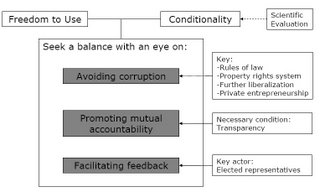Facts
Indonesia is highly debt-dependent. The total debt amounted to USD 134 billions or almost 50% of GDP. The government debt constitutes almost 30% of the total debt, of which, 68% is in the form of Official Development Assistance (both bilateral and multilateral arrangement, in roughly similar weight). The ratio of government development expenditure over ODA in 2004 was 14%. This might be a new evidence against Pack and Pack (American Economic Review, 1990)'s conclusion that aid in Indonesia is not fungible. Of course, we need to realize that out of the total government expenditure, only 18% went to development expenditure (2004 data). For comparison, 17% went to interest payment and 23% went to subsidies (of which, 85% for fuel subsidy). Looking further to 2004 actual budget, it is disheartening indeed. As we know, the government ran a budget deficit of 1.3% of GDP. At the same time, 3.4% of GDP was used to finance subsidy, 2% to pay foreign debt amortization (gross drwaing was only 1% of GDP, resulting in a negative foreign financing), and 1% to redeem government bonds.
Donor-Recipient "Romance"?
I looked at the history of Indonesia's aid dependency. The donors seemed to really believe in Soeharto's administration, despite the poor state of democracy (and for that matter, poor governance). As the regime collapsed in 1998, democracy movement was underway. But the trust seemed to vanish, as evidenced by increasing conditionalities. The challenge now, therefore, is to regain trust/confidence while keep pursuing on democracy. ("There's always a price for democracy").
 Challenges Ahead
Challenges AheadWhich leads me to an apparent conflict of "freedom to use" aids and the attached conditionality on ODAs. We can't but to seek a balance, therefore:

The paper is still being refined. For complete powerpoint presentation, send me an email.
No comments:
Post a Comment